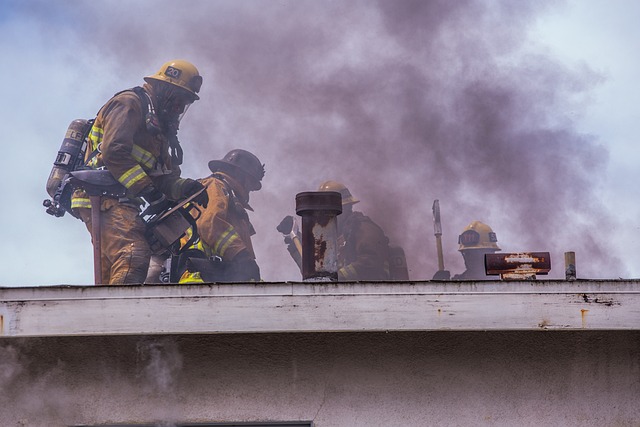In California, selling a home with fire damage comes with specific legal obligations focused on transparency and fairness. Sellers must provide a detailed "Disclosure Statement" outlining the incident, required repairs, and ongoing restoration work. Buyers should be informed about structural elements affected by fire, such as roofs, floors, electrical systems, or plumbing, to make informed decisions and negotiate terms. Failure to disclose hidden fire damage could lead to fraud claims and lawsuits. Real estate professionals and attorneys are crucial for compliance with California's disclosure laws, ensuring buyer trust through thorough inspections, detailed reports, transparent listing, and offering home inspection contingencies.
In California, property disclosure requirements for selling a home are stringent, especially regarding fire damage. This article delves into the intricacies of these regulations, guiding both sellers and buyers navigating the complexities of real estate transactions. We explore what constitutes fire damage for legal purposes, the potential legal implications of omitting such disclosures, and practical steps to ensure comprehensive transparency and risk mitigation. Understanding these requirements is crucial when considering whether to sell a house with fire damage in California.
- Understanding Property Disclosure Requirements in California
- What Constitutes Fire Damage for Real Estate Purposes?
- Legal Implications of Selling a House with Fire Damage
- Steps to Disclose and Mitigate Risks Associated with Fire Damage
Understanding Property Disclosure Requirements in California

In California, property disclosure requirements are crucial for both sellers and buyers to ensure transparency and fairness in real estate transactions. When it comes to selling a home with fire damage, understanding these regulations is essential. If a property has sustained fire damage, sellers must disclose this information in writing to potential buyers. This includes detailing the extent of the damage, when it occurred, and any ongoing repairs or remediation efforts. Failure to do so can lead to legal consequences and even financial penalties.
California law requires sellers to provide a “Disclosure Statement” that lists all known defects or issues with the property. For homes with fire damage, this statement should include specific details such as the cause of the fire (if known), any structural repairs needed, and the current state of restoration work. By being transparent about these matters, buyers can make informed decisions and potentially negotiate terms or seek compensation for necessary repairs.
What Constitutes Fire Damage for Real Estate Purposes?

When it comes to real estate transactions in California, understanding what constitutes fire damage is crucial for both buyers and sellers. Fire damage goes beyond just charred walls; it encompasses a wide range of issues that can impact a property’s value and safety. For legal purposes, any structural element or feature affected by a fire, whether it’s the roof, flooring, electrical systems, or plumbing, is considered fire damage. This includes not only direct exposure to flames but also secondary effects like smoke and water damage from firefighting efforts.
In California, real estate listings that have experienced fire damage must disclose these issues thoroughly. Sellers are legally obligated to reveal any known fire-related problems to prospective buyers, providing detailed accounts of the extent of the damage and any repairs carried out. This transparency is designed to ensure that all parties involved in a real estate transaction make informed decisions, especially regarding potential costs for restoration or renovation work.
Legal Implications of Selling a House with Fire Damage

Selling a house with fire damage in California involves navigating complex legal implications. First, California law requires property sellers to disclose any known material defects, including significant fire damage, to potential buyers. Failure to do so can lead to legal liability and financial repercussions for the seller. This is because buyers rely on accurate information when making real estate decisions, and withholding or misrepresenting such critical details may constitute fraud.
Moreover, if a buyer purchases a property with hidden fire damage and suffers injury or property loss as a result, they could file a lawsuit against the seller. Legal experts advise that even minor indications of fire damage, such as charred walls or ceiling stains, should be disclosed to avoid potential legal disputes down the line. It’s crucial for homeowners considering sale to consult with real estate professionals and attorneys to ensure compliance with California’s property disclosure laws.
Steps to Disclose and Mitigate Risks Associated with Fire Damage

When selling a home in California with fire damage, disclosing and mitigating risks is crucial. The first step is to conduct a thorough inspection to assess the extent of the damage. This involves evaluating structural integrity, identifying potential hazards, and determining the cause of the fire. Once the inspection is complete, prepare a detailed report outlining all findings, including any necessary repairs or replacements.
Next, disclose this information transparently in your property listing. Highlight the history of fire damage and mention any ongoing remediation efforts. Additionally, consider offering potential buyers a home inspection contingency to address their concerns. By taking these steps, you not only comply with California’s property disclosure requirements but also foster trust and confidence among prospective buyers considering a purchase despite the fire damage.
In California, understanding property disclosure requirements is essential when selling a home, especially if there’s evidence of fire damage. Knowing what constitutes fire damage and its legal implications can help sellers mitigate risks effectively. By following the outlined steps to disclose and mitigate concerns, homeowners can ensure a transparent transaction process, allowing them to sell their homes that have experienced fire damage with ease. Remember, candor throughout the process is key to a successful sale in the California real estate market.






